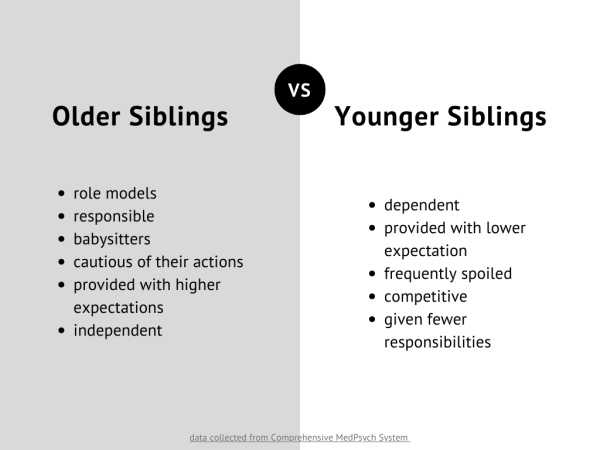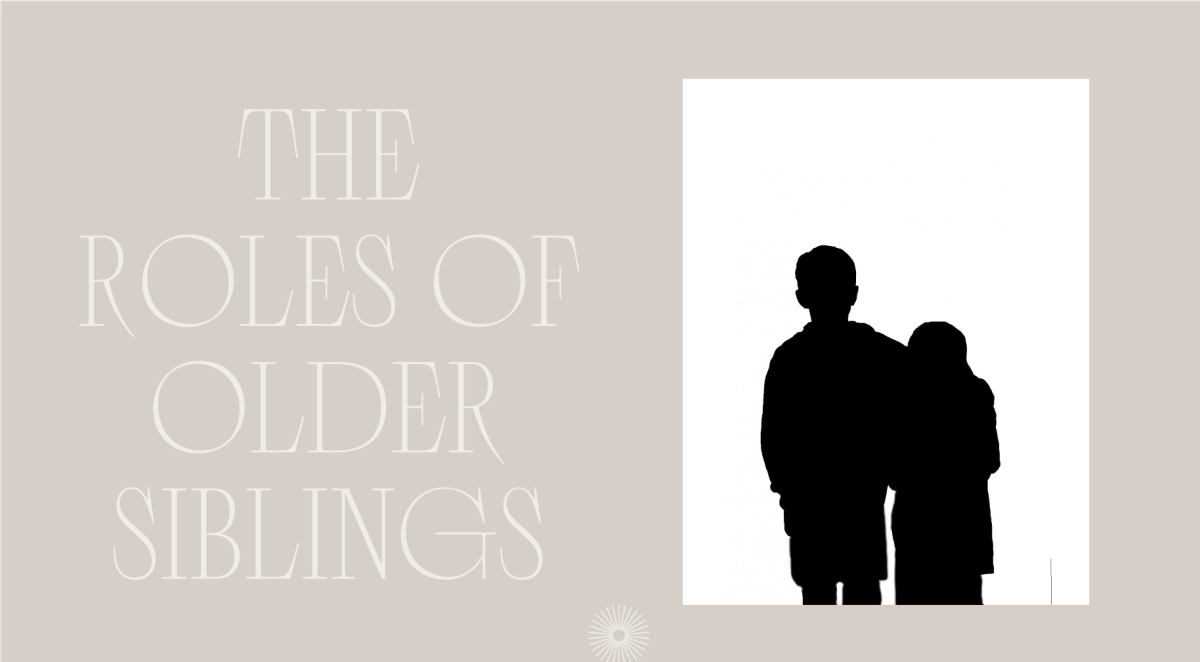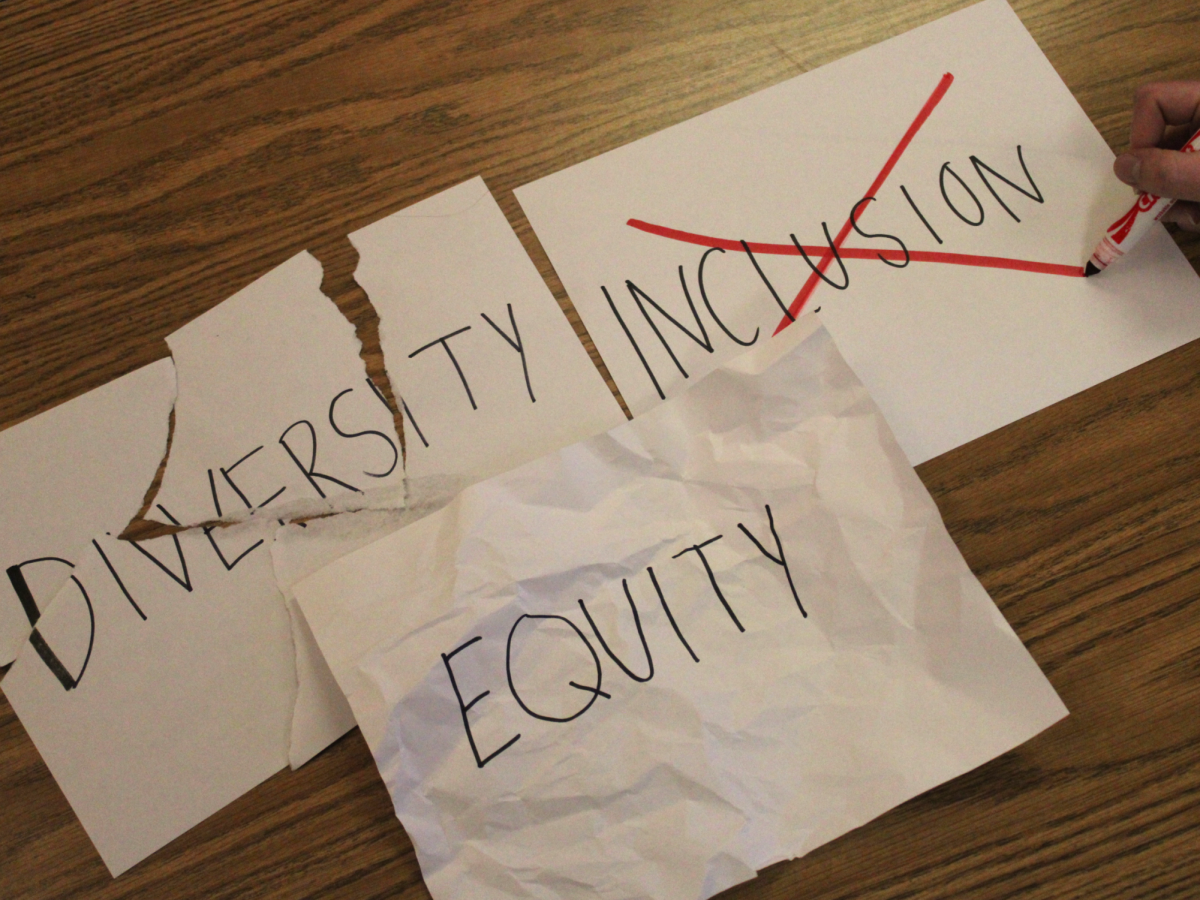Older siblings, particularly those with significant age gaps, hold a profound influence over their younger siblings’ lives. With the nature of this role shaped by family dynamics and individual personalities, firstborns bear the responsibility of upholding the family’s reputation and setting the path for success. This early burden alters their personal development, subsequently molding how older siblings shape the lives of their younger brothers and sisters. Older siblings serve as vital role models by forming their younger siblings’ character, which notably impacts how younger siblings imitate actions or thrive later in life. Not only that, they play a dual role, offering guidance and advice to their younger siblings and, at times, filling in the gaps left by their parents.
“An important part of being the oldest sibling is trying to take care of them when their parents are not home. Sometimes, my parents may be busy, so I will have to cook for them and ensure their safety as well. If I were to be given a choice, I would be the youngest since they always have it easier,” sophomore Benjamin Carr said.
Several would argue that when a young couple embarks on the parenthood journey with their first child, they face a host of challenges and trials. Younger siblings, on the other hand, benefit from parents who have gained experience and insight into effective parenting styles. Parents show an increased interest in the academic success of their firstborn to set examples for their younger children. Countless individuals believe that the presence of an older child simplifies the management of the younger one. Researchers such as Dr. Fran Walfish, a child and family psychotherapist, concluded that parents begin their parenting journey with stricter regulations and a reputation. This, consequently, encourages younger siblings to model their older counterparts. As parents become at ease, they find solace in relying on the eldest child for assistance with basic needs for the younger child, ranging from preparing food to babysitting.
However, parents should keep in mind that their older children, despite their maturity, remain too young to take on adult responsibilities. From facing academic and social expectations to holding the family’s reputation and guiding younger siblings, older children receive limited recognition for the roles they play. Parents frequently anticipate greater independence, responsibility and self-regulation from their eldest children. This pressure propels the eldest siblings into rapid development during their adolescent years. As a result, they find themselves shouldering numerous responsibilities. Part of those responsibilities includes the need for them to constantly exercise caution in what they say and do because of the fear of blame pointed at them when the younger sibling picks up on “wrong” conduct of behavior.
The roles and personalities of these children remain profoundly shaped by the social environment in which they grow up. In countless situations, older siblings step into the role of substitute parents. Various families highlight this issue: For example, when parents leave for work and need a form of childcare, they may rely on the eldest child to manage the household in their absence.

In the realm of interparental conflict, the elder child bears the brunt of the consequences. These children can find themselves thrust into a ‘parentified‘ role due to parental conflicts such as substance abuse, divorce, the loss of one parent or financial struggles. In such situations, they frequently assume the roles of mediators between their parents or become protectors of their younger siblings. Parental conflict may result in a significant emotional influence on children. Putting aside their own emotions, they accept responsibility for their younger siblings’ physical and mental well-being. Older siblings could find themselves stuck with additional duties like keeping the household tidy, preparing siblings for school, washing the dishes and preparing food that they may find difficult to avoid and sacrifice their own free time for.
Engaging with older siblings can help younger children enhance their emotional, perspective-taking and problem-solving abilities, which leads to greater social competence and emotional understanding. Research and studies have shown that younger siblings with friendly, caring, and supportive older siblings happen to show more sympathy than those whose siblings lack these qualities. This favorable effect also extends to younger siblings’ ability to feel sympathy and compassion for individuals. According to the research, older and younger siblings possess a long-term favorable impact on each other’s sympathy, independent of parental influence. Older children provide several advantages to the family, and their contributions receive insufficient appreciation.
“I have two younger siblings, and I am kind of their second parent. I try to make sure my younger siblings follow my direction, do the right things, and have my support. Comparing the privileges, I would definitely say I have more since my parents trust me more and are confident in me. They also rely on me more, so I do have a good amount of advantages. If given a choice, I would stay as the older sibling, and only because it makes me feel more respected and I get the privilege to shape how I want my siblings to be,” junior Maya Agbor said.










